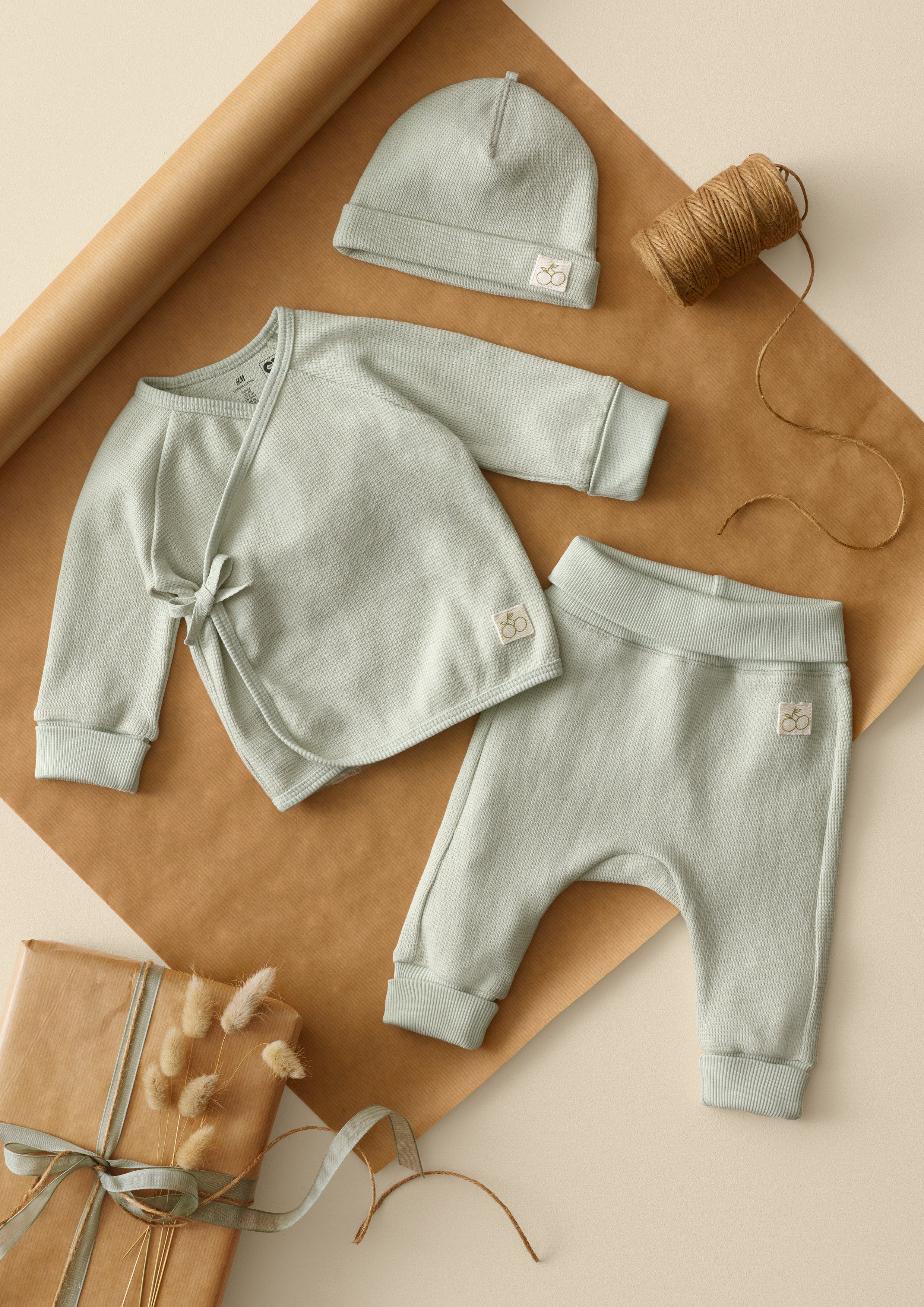Your support helps us to tell the story
From reproductive rights to climate change to Big Tech, The Independent is on the ground when the story is developing. Whether it's investigating the financials of Elon Musk's pro-Trump PAC or producing our latest documentary, 'The A Word', which shines a light on the American women fighting for reproductive rights, we know how important it is to parse out the facts from the messaging.
At such a critical moment in US history, we need reporters on the ground. Your donation allows us to keep sending journalists to speak to both sides of the story.
The Independent is trusted by Americans across the entire political spectrum. And unlike many other quality news outlets, we choose not to lock Americans out of our reporting and analysis with paywalls. We believe quality journalism should be available to everyone, paid for by those who can afford it.
Your support makes all the difference.H&M is launching a range of baby clothes that it says are fully compostable once they have been “loved beyond wear”.
The high street retailer’s “Cradle to Cradle” range comprises of 12 organic cotton pieces for newborns and will be available exclusively online.
Soft pastel colours as well as colourful fruit and vegetable prints feature throughout the collection, which also incorporates “room to grow” features such as adjustable waists and foldable waistbands and cuffs to prolong the garments’ usage.
Babies grow quickly and gain weight rapidly in their first six to nine months and outgrow around seven clothing sizes within their first two years.
This means that a large amount of the 350,000 tonnes of unwanted clothing, worth around £140 million, that go to landfill in the UK each year comprises of outgrown baby clothing.
According to H&M, the new range meets the Cradle to Cradle Certified Product Standard, which is a global framework for designing and manufacturing more circular products.

The certification involves a product assessment across five categories of sustainability performance, including material health, product circularity, clean air and climate protection, water and soil stewardship, and social fairness.
H&M said it “worked closely with supply chain partners to ensure each product… was created using materials free from chemicals harmful to humans and the environment and designed without plastic of metal trims”.
This means that each of the 100 per cent cotton pieces are biodegradable, and can be put into “any home compost container” once they can no longer be worn.
The brand said the range will be available online this month, but did not specify a date.

Abigail Kammerzell, H&M’s head of sustainability in the US, told CNN that the range is the “first of any of our clothing collections that is compostable”.
She added that the company is in a position “to enable big changes in the fashion industry and we hope to be a leader in sustainability and keep clothes out of landfills”.
Compostable textiles will also keep the clothes out of recycling centres and textile banks. Clothes Aid, a social enterprise that collects clothes for British charities, says that Britons send 700,000 tonnes of clothing to recycling centres, textile banks, clothes collections and to charity each year.
However, the use of non-organic materials, such as polyester or other textile blends that include plastics and metals, and the use of dyes makes recycling clothing very difficult.
Meanwhile, a 2021 investigation by Australia’s ABC news broadcaster found that many clothes that are donated to charity end up in landfill sites in other countries. It found that around 15 million second-hand clothes are sent to Accra, the capital of Ghana, every week from the UK, Europe, North America and Australia.

Join our commenting forum
Join thought-provoking conversations, follow other Independent readers and see their replies
Comments